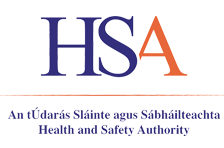Fire, Electricity & Chemicals
Fire
|
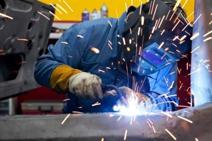 |
|
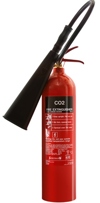 |
Electricity
|
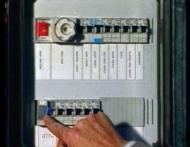 |
Fuses and Miniature Circuit-Breakers (MCBs)
- Use an MCB or a fuse to protect the circuit from fault or overload
- Use the correct type and rating
- Do not replace an MCB with one of a larger size
- Find out the cause of the fuse blowing or MCB tripping
- If you are unsure as to the adequacy of your fuse board, MCB assembly or any other part of your electrical installation, check with a competent electrician or electrical contractor
Portable Electrical Equipment and RCDs
- Fit residual current devices (RCDs) with a 30 mA fault setting on all 220V and 380V socket circuits
- Test RCDs monthly, by using the test-trip button
- Use 110V supply for smaller items of portable equipment (up to 2KVA) in wet areas
- Keep cables, plugs, sockets and cable couplers in good condition and replace where damaged
Plugs and Sockets
- Domestic-type plugs and sockets are not suitable for use on farms
- Plugs and sockets must be of sufficient capacity and appropriate to the voltage of the equipment used
Earthing
- All exposed metal parts (normally non-current-carrying) must be earthed
- Protective conductors for earthing must be of sufficient size and properly installed, protected and maintained
- Protective conductors, if broken or disconnected, must be immediately restored
- Good earthing is essential if safety devices such as fuses and circuit breakers are to work properly
- Get your earthing circuits tested by a competent electrician
Electric Welders
- These should be supplied from separate circuits
- Plugs and sockets should be of adequate capacity (32 amps)
- An RCD (30 mA fault setting) must be provided
- Exposed conductive parts of the welder must be bonded together and connected to the welder protective conductor at a common terminal
- The return conductor cable should be connected to the work piece using a proper clamp
- User's eyes must be protected by a suitable filter lens contained in a welding helmet or hand-held shield, which protects face and neck against heat radiation
- Hands and forearms should be protected by suitable gloves and by keeping sleeves pulled down
- ESB requires notification before an electric welder is installed
Generators
- Portable generators should have industrial-type sockets (IEC 309) located on the generator frame for connection
- Generators supplying permanent wired installations should have mechanically interlocked switching facilities between ESB and generator supplies (the switch should be clearly marked to show the ESB, generator on and off positions)
- The ESB requires notification when a standby generator is to be installed
Overhead lines
|
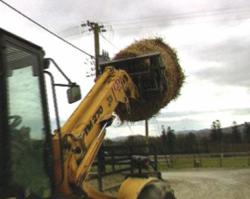 |
Electric fences
- Don't run fences parallel to power lines because dangerous induced voltages might result
- Keep fence earth a minimum of 10 metres from main installation earth
- Never 'twitch' fence wires under power lines
- Never electrify barbed wire
- Maintain safe clearances from overhead wires
Chemicals
|
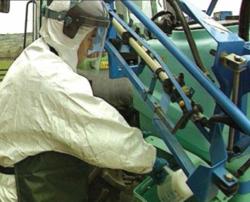 |
Sheep Dips
- To avoid the ill- health effects from sheep dips farmers should consider using alternative products, isolate the handler from the sheep dip and use proper protective equipment and clothing
- The Health Products Regulatory Authority provides a list of approved sheep dips
- Use the correct specifications for Sheep Dipping and Handling Facilities
